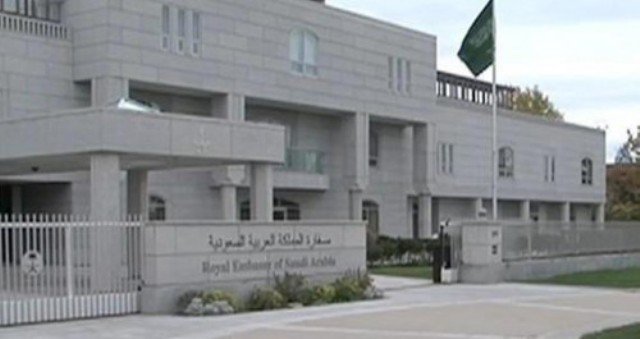
Saudi Arabia’s execution of a Shi’ite Muslim cleric could undermine efforts to improve relations with regional rival Iraq, where politicians, militias and a prominent cleric called on Saturday for newly resumed diplomatic ties to be severed.
The Sunni-ruled kingdom reopened its embassy in Baghdad this week for the first time since ties were cut in 1990 over Iraq’s invasion of Kuwait, underscoring a rapprochement that could help boost a regional alliance against Islamic State militants.
But Saturday’s execution of top cleric Sheikh Nimr al-Nimr drew calls in Iraq for the Saudi embassy to remain shuttered.
“I urge the government to refrain from opening the Saudi embassy,” prominent Iraqi Shi’ite cleric Moqtada al-Sadr said in a statement, urging angry demonstrations in his country and across the Gulf to protest the execution.
Iranian-backed militia Asaib Ahl al-Haq, meanwhile, accused Saudi Arabia of seeking to fuel Sunni-Shi’ite strife.
“What is the use of having a Saudi embassy in Iraq?” the armed group added in a statement.
Qassim al-Araji, a leader of the Badr Organization, another Iranian-linked Shi’ite paramilitary groups with a political wing, called on the government to cut diplomatic ties “immediately”.
He said Nimr’s execution had “opened the gates of hell”, in comments broadcast on al-Ghadeer, his group’s television channel.
Saudi Arabia executed 47 people on Saturday including Nimr, whom the government had accused of inciting violence against the police. Nimr’s supporters say he was a peaceful dissident who called for greater rights for the kingdom’s Shi’ite minority.
Saudi Arabia has long accused fellow oil producer Iraq of being too close to Shi’ite power Iran and of encouraging sectarian discrimination against Sunnis, a charge Baghdad denies.
Some Iraqi politicians say Saudi Arabia is behind the rise of Islamic State, though the kingdom has disavowed the ultra-hardline version of Sunni Islam which the militant group favours.
Islamic State controls large swathes of territory in Iraq and neighbouring Syria and claimed several deadly attacks inside Saudi Arabia last year.
Humam Hamoudi, a prominent Shi’ite politician and member of the powerful Islamic Supreme Council of Iraq (ISCI) party, warned that Nimr’s execution would benefit Islamic State by exacerbating sectarian strife between Sunnis and Shi’ites.
Former Iraqi prime minister Nuri al-Maliki said the decision to execute Nimr would topple the Saudi government “as the crime of executing the martyr (Mohammed Baqir) al-Sadr did to Saddam (Hussein),” referring to another prominent Shi’ite cleric killed by the Iraqi government in 1980.
REUTERS
Leave a Reply
You must be logged in to post a comment.